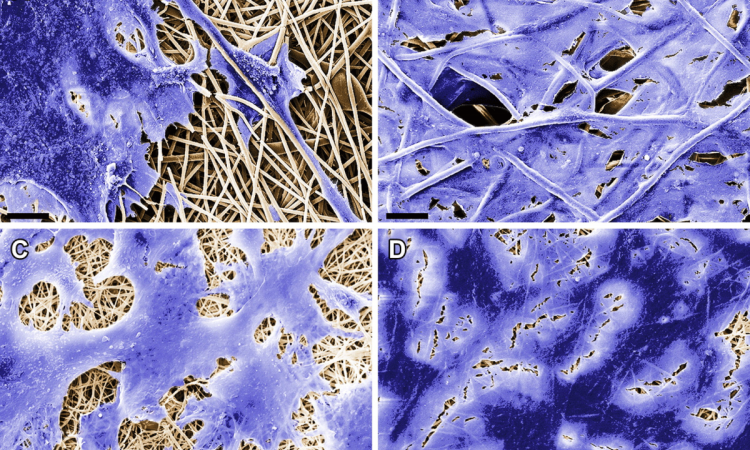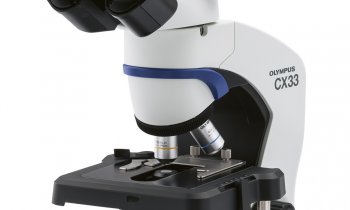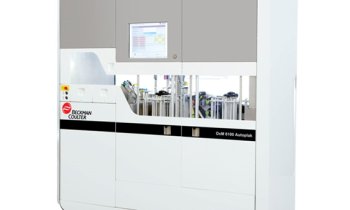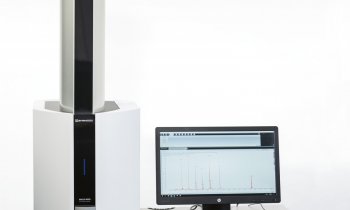Outsourcing, co-operation or centralisation
What does the future hold for hospital laboratories?
The complete takeover of hospital laboratories through private laboratory service providers is rapidly changing the nature of German laboratories. Taking a closer look at these developments, it becomes apparent that several trends are developing.

On the one hand there are massive efforts towards outsourcing, i.e. privatisation of laboratory diagnostic services in hospitals. This can be on a legal and spatial basis, i.e. in the shape of a complete closure of the in-house laboratory. An external laboratory then supplies the hospital entirely with the necessary laboratory diagnostic services; however, at the same time this necessitates the installation of POCT (point of care testing) on site to ensure that emergency laboratory testing facilities are always available in the hospital.
However, laboratory outsourcing does not necessarily require spatial outsourcing of the production of laboratory results, as the 24hr availability of a laboratory is a must-criterion for continued high quality patient care in medium-size and large hospitals. The external laboratory services provider takes on legal, organisational and financial responsibility and acts as the operator of the in-house laboratory. The existing staff can be taken over or supplied by the hospital. At the same time the strategic laboratory partner is guaranteed the exclusiveness of outsourcing - laboratory tests that the hospital did not process for economic or technical reasons and that were sent on to other, specialised laboratories, are now exclusively processed by the new laboratory partner.
Along with outsourcing there are also increasing efforts towards co-operation and centralisation of laboratory diagnostics in hospitals, especially against the backdrop of the recent waves of mergers among public hospitals. We often see the formation of one main laboratory and one or more basic laboratories, whereby the range of services offered by the basic laboratories is limited to easily mechanised, routine parameters, and service hours are often limited. The main laboratory, on the other hand, not only offers routine diagnostics but also specialised services in hormone diagnostics or microbiology.
In the course of centralisation it is also possible that smaller laboratory units are closed and one central laboratory takes on the round-the-clock care for several hospitals.
As a result of the 2004 Law on the Modernisation of Healthcare, hospitals are increasingly making use of a further type of laboratory care. So-called medical centres, run jointly by hospitals and/or private laboratories, concentrate laboratory diagnostics of at least two specialised areas (such as laboratory medicine, microbiology) and additionally act as providers for out-patient clinics and other users. This structure is particularly common for large hospitals or university hospitals where the range of services offered exceeds the capacities of conventional, medium-size hospital laboratories. These types of solutions are also similar to the outsourcing principle.
For private providers (laboratory specialists in private practice) who have to survive in a strongly competitive market characterised by crowding out, loss of profits and stagnation resulting from health politics, the wave of outsourcings of laboratory diagnostic hospital services offers an enormous growth potential.
Hospital laboratories are currently much sought-after objects, with the competition offering them opportunities to obtain laboratory provision at around 20-30% cheaper compared with own-run laboratories. The winners of this development are often large laboratory services providers with supra-regional structures. They are able to use (and pass on the benefits of) their advantageous conditions of purchase and know-how within the industry to the hospital laboratories. Laboratory doctors in private practice have already had to learn to deliver economical, rational but nonetheless high quality work, often associated with painful losses.
The changing structures only very rarely lead to losses in quality, because the laboratories have comprehensive quality management in the shape of special accreditations and certifications. The developments explained above account for the increasingly growing proportion of privatised hospital laboratories.
At the same time, the trend in the private laboratory sector is towards concentration of the labour market, not only on a German but also on a European level. International chains of laboratory services providers are rushing on to the German market as the local laboratory companies are sought-after objects for potential take-overs or stakes, because they are mostly tightly organised and work efficiently. Sonic Healthcare made the headlines in 2007 when they took out a stake in Labor Schottdorf in Augsburg, and so did the takeover of Bioscientia GmbH. Futurelab, a laboratory services provider predominantly operating hospital laboratories and currently expanding across Austria, Switzerland and Eastern Europe, has acquired a major stake in the Münchener Labor Dr. Tiller. It seems that none of the large German laboratory companies is currently safe from rumours of takeover, but then, there is a little truth in every rumour.
It would not be speculative to say that the European labour market will increasingly be characterised by convergence and internationalisation. It remains to be seen to what extent further, internationally represented companies – from other industries as well – will break into this market, which is still attractive, with returns of up to 20%.
www.1K-die-krankenhausberater.de
By Marika Mayer, Consultant with Master’s degree in business Administration, 1K-die-Krankenhausberater.
19.03.2008











